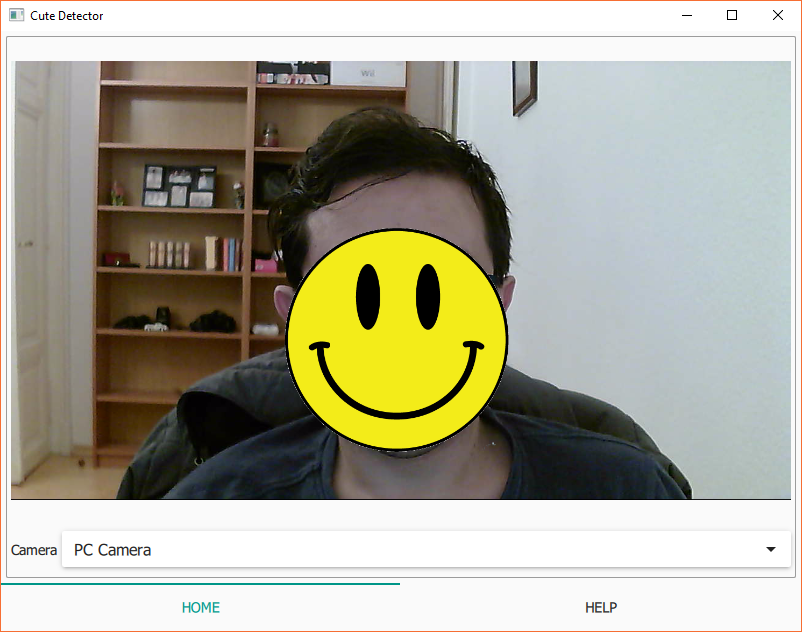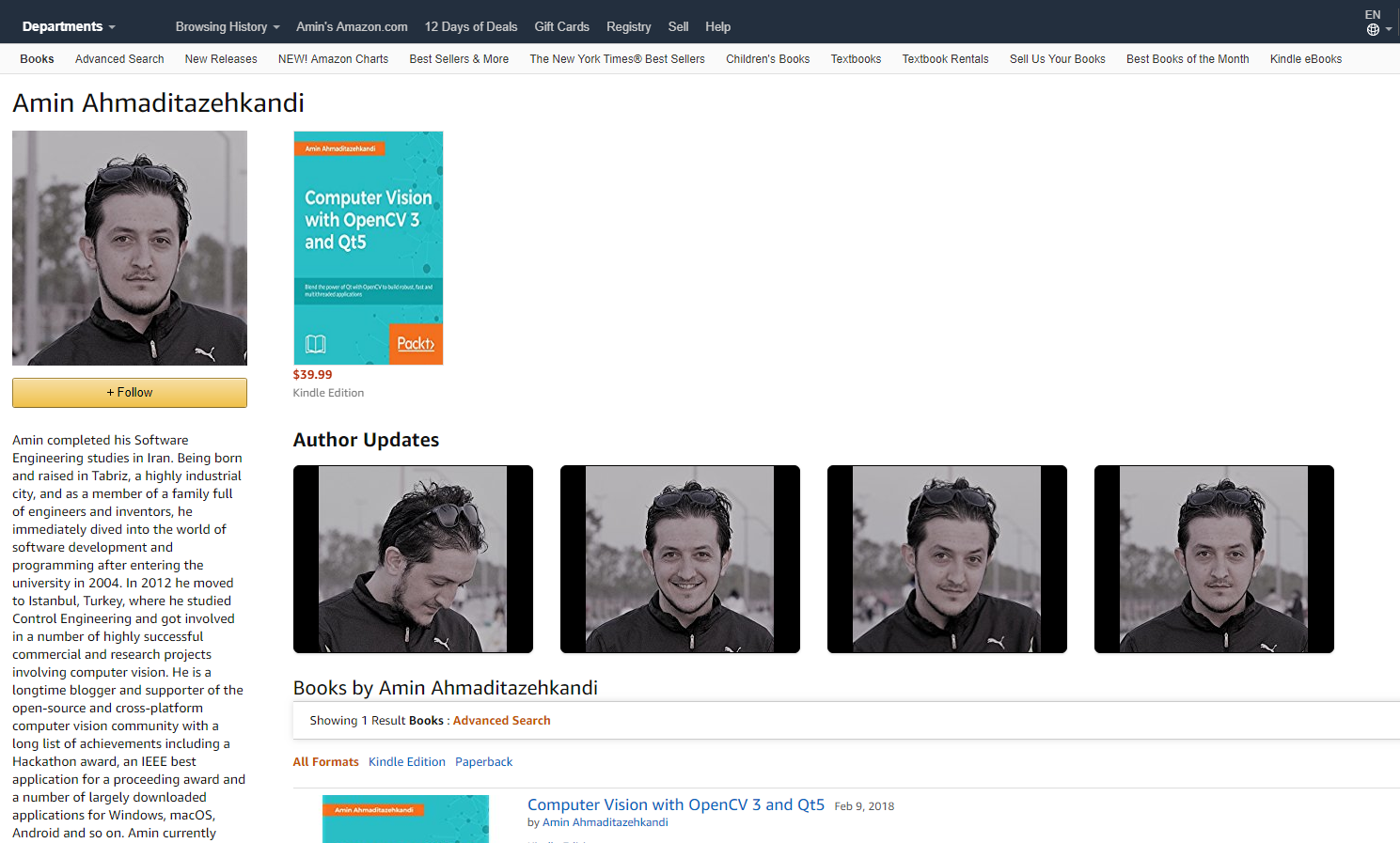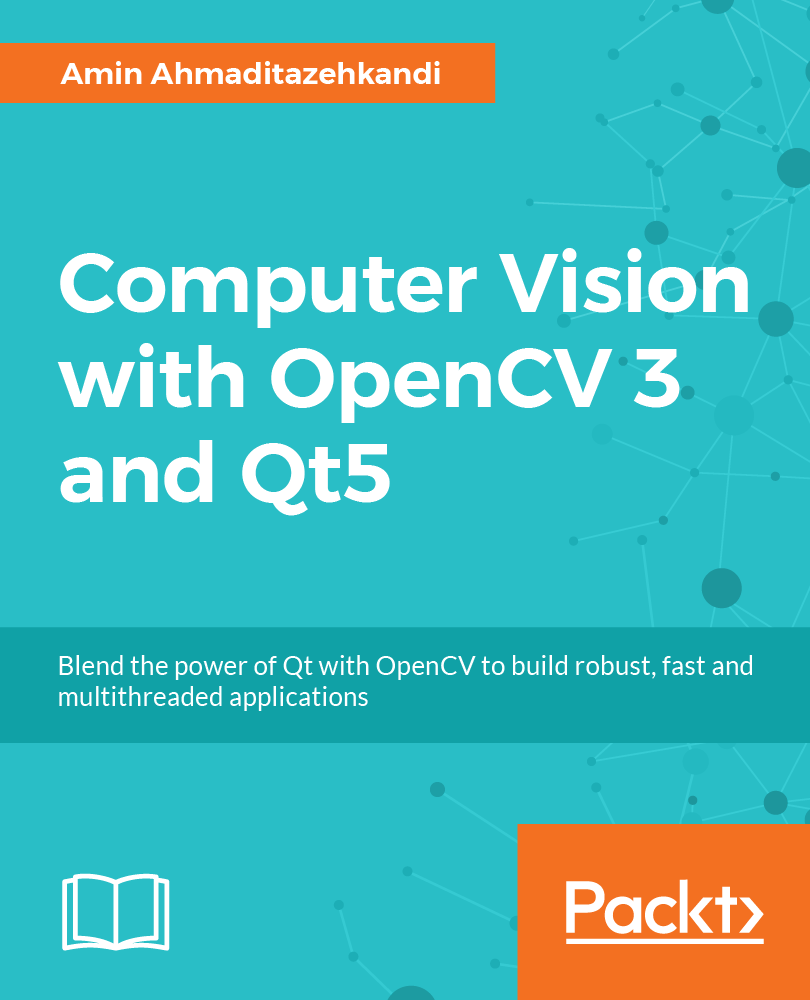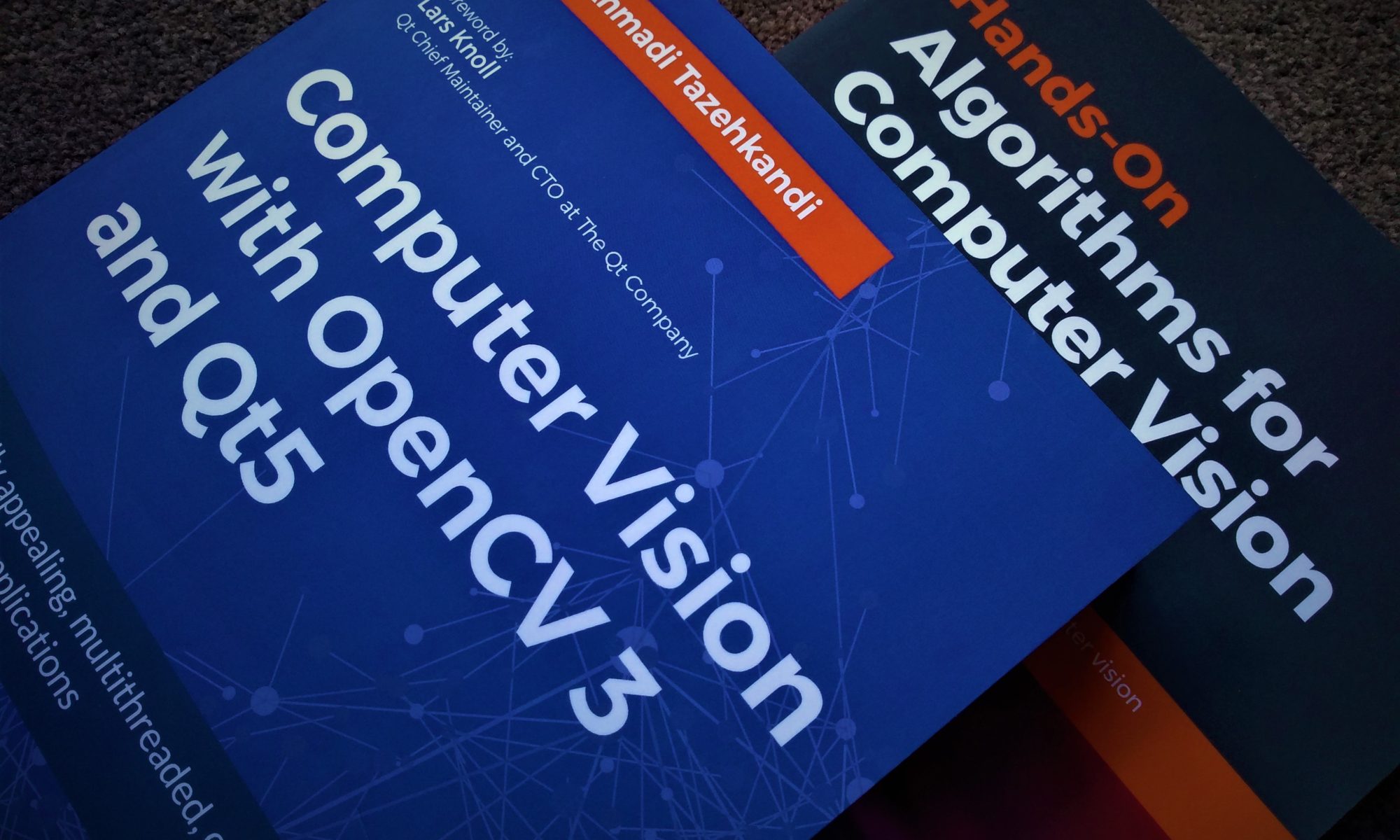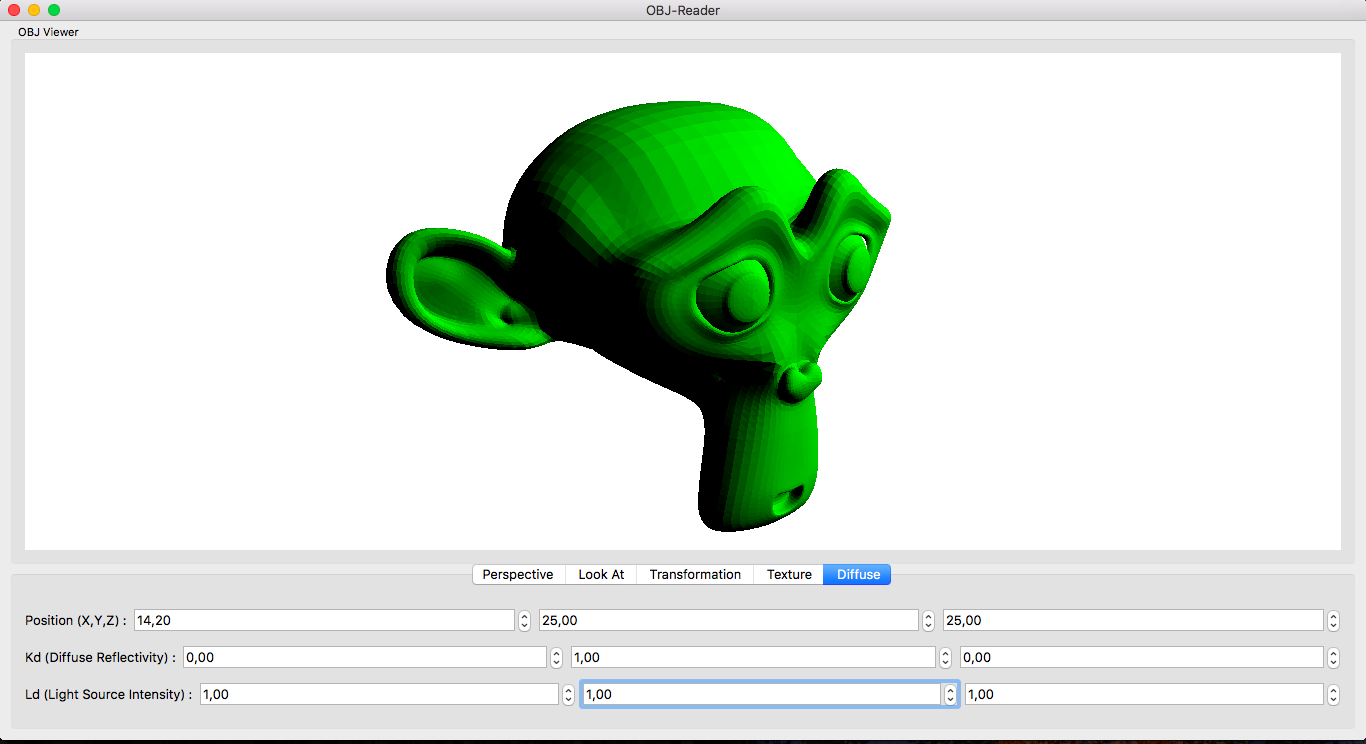In this post I’ll describe how to combine the power of Qt and OpenCV to develop a good looking and fun object detector. The method explained here contains quite a few things to learn and use in your current and future projects, so let’s get started.
Continue reading “Object Detection Using Qt, C++, QML and OpenCV”How to Access Windows Event Log Using C++ with Qt and Win32 API
In this post I’ll share a method you can use to access and read events in Windows operating system, using C++. Note that this method is modified to be used with Qt, but you can easily replace the few Qt classes used in this example and remove the dependency on Qt if you are using any other frameworks. In any case, this method relies on Win32 APIs and will work only on Windows operating system.
Continue reading “How to Access Windows Event Log Using C++ with Qt and Win32 API”My Amazon Author Page
As we are nearing the publication date of my upcoming book (titled Computer Vision with OpenCV 3 and Qt5), my Amazon Author page is now also reachable using the following link:
Thanks Amazon for this literally short link!
How to Build Qt 5.9.2 Static Using MinGW
You can follow the instructions below to build Qt 5.9.2 from sources using MinGW, and statically. To be able to proceed further, you need to make sure you have all the prerequisites on your PC, which are mentioned in this post, then return here.Assuming that you have taken care of all the requirements, you can start by downloading MinGW and Qt 5.9.2 source codes, or take the better and “recommended” route and simply download both of them using the Qt 5.9.2 all-in-one installer for Windows.
Continue reading “How to Build Qt 5.9.2 Static Using MinGW”Computer Vision with OpenCV 3 and Qt5, Now Available for Preorder
It is one thing to become an author, but it is totally another level of joy, to be published by my most favorite publisher in the computer science industry. So, it is with great pleasure that today I can announce that my upcoming book about OpenCV and Qt is available for preordering on Amazon, and also from PacktPub. It’s titled “Computer Vision with OpenCV 3 and Qt5”, and it aims to teach both computer vision and application development for developers who are familiar with C++ (on an intermediate level), but want to learn about powerful cross-platform frameworks such as Qt and OpenCV with hands-on examples and clear instructions. The book is in its final stages of completion, so I’m also excited to announce that our goal is to make it available by the beginning of 2018 and we are working hard to make it happen. Here are the links to preorder:
https://www.packtpub.com/application-development/computer-vision-opencv-3-and-qt5
How to Build Qt From Source Codes
In this post you’ll find information about how to build Qt from source. We’ll be building the latest version of Qt, released about a week ago, using its source codes, both dynamically and statically and with various customized configurations. So without further ado, let’s start.
Continue reading “How to Build Qt From Source Codes”How to Build OpenCV 3.3.X for Android
In this post I’m sharing the required steps for building OpenCV 3.3.X (to be precise, OpenCV 3.3.0 which was released about a week ago) for Android. You can also download the pre-built libraries from here but it’s always a good idea to build the libraries yourself in case you want any special configurations such as Nvidia Carotene, OpenCV World and so on. So here it is:
Continue reading “How to Build OpenCV 3.3.X for Android”OpenCV 3.2.0 Pre-Built Libraries for Android
In this post I’m sharing the pre-built libraries and binaries for OpenCV that I use to build Qt/QML and OpenCV powered apps for Android (armeabi-v7a) phones. An example of such application is Quick-Camera-CV which I shared its source codes in a previous post.
Continue reading “OpenCV 3.2.0 Pre-Built Libraries for Android”How to Use C++/Qt/QML/OpenCV to Write Mobile Applications
I have avoided using QML for long time and always wrote even the most simple applications using Qt Widgets and C++ code but the release of Qt’s Quick Controls 2 and Material Style just made it very irresistible and I had to go for it. Well it didn’t take too long to get a hold of things (for a newcomer) since I had enough programming experience and QML is just too well-structured and easy to learn and use. In this post I’m going to share a project that demonstrates using OpenCV in QML to write beautiful and powerful Android (and other platforms) apps.
Continue reading “How to Use C++/Qt/QML/OpenCV to Write Mobile Applications”Diffuse Shading in OpenGL Using Qt
This one is taken from one of my favourite books (OpenGL 4.0 Shading Language Cookbook) and the relevant chapter’s title for this tutorial in the book is called “Implementing diffuse, per-vertex shading with a single point light source”. Of course it’s modified to use OpenGL ES in Qt which is more cross-platform and creates less issues with building and running on different operating systems (including Android and iOS)
Continue reading “Diffuse Shading in OpenGL Using Qt”
